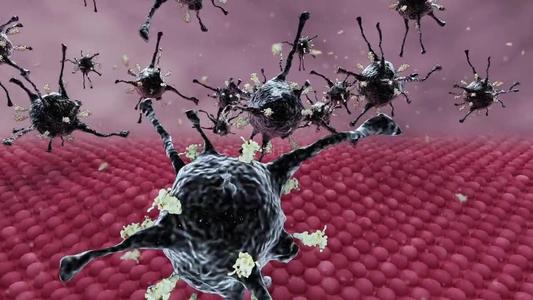Healthy diet
Nine questions suggest that your body is full of toxins
1、constipation
If you defecate more than three days or more, you may have constipation. According to different symptoms, constipation can be divided into two types: habitual constipation and incidental constipation. The large intestine forms excrement and controls defecation, which is one of the main channels for the body to expel toxins. If the poison is stored in the body, it will affect the operation of the spleen and stomach, cause the conduction disorder of the large intestine, and lead to intestinal obstruction and constipation. Long term constipation, feces can not be discharged in time, will produce a large number of toxin accumulation, these toxins are absorbed by the human body, will secondary gastrointestinal discomfort, halitosis.
2. Halitosis
Halitosis is a symptom of foul breath in the mouth. It is caused by heat accumulation in the lung, spleen and stomach or by the indigestion of food. These things become toxins if they cannot be discharged in the body for a long time. Excessive consumption of spicy food or overeating, fatigue, pathogenic heat, deficiency of fire, or some oral diseases, such as oral ulcer, caries and digestive system diseases, can cause bad breath.
3, obesity
If you weigh 20% more than the standard weight, or your body mass index (weight (kg) / body surface area (M2)) is greater than 24, you are obese. Obesity is a disease with excessive nutrition. If we overeat high-fat and high calorie food for a long time, toxins will breed in the body, which will cause the imbalance of the body and lead to obesity. In addition to the symptoms of weakness, inconvenient movement, wheezing, palpitation, fear of heat and sweating, low back pain, lower extremity joint pain and so on, most of the patients have abnormal metabolism and endocrine of substances such as sugar, fat, water and so on.
4. Chloasma
The causes of chloasma are endocrine changes, long-term oral contraceptives, liver diseases, tumors, chronic alcoholism and sunlight. Everyone expects to have a beautiful face, but I don’t know when it will start. There are yellow brown or light black patches on your face, which are map like or butterfly like patches, making your skin lose its original delicate luster.
5. Acne
Acne is a chronic inflammatory skin disease of hair follicles and sebaceous glands. A large number of toxic substances are produced by various toxins under the action of bacteria, which endanger the whole body with the blood circulation; when the discharge is blocked, it will seep through the skin, making the skin rough and acne. In addition, micronutrient deficiencies, stress, a high-fat or carbohydrate diet are all contributing factors to acne. So we can’t just pay attention to the “face” and ignore the “environmental protection” in our bodies;.
&6. Skin itching
Skin is the largest detoxification organ of human body. Sweat glands and sebaceous glands on the skin can excrete toxins that other organs cannot solve through sweating and other ways. External stimulation, irregular life, mental tension, and endocrine disorders can weaken this function of the skin and cause itching. Chronic gastritis: it is a kind of chronic gastric mucositis caused by the lack of diet, the weakness of the spleen and stomach, and the excessive exertion, which forms a kind of symptoms of toxic retention in the body and blocked Qi and blood.
7. Duodenal ulcer
The endogenous poison of melancholy and anger, liver depression and qi stagnation, improper diet, excessive hunger and satiety, spicy food and other things, as well as the external poison brought by smoking and drinking can cause duodenal ulcer.
8. Irritable bowel syndrome
It refers to the excessive response or abnormal phenomenon of intestinal tract to stimulation, resulting in sluggish blood flow, blocked detoxification pipeline, and multiple toxins retained in the body. The main characteristics are abdominal discomfort or abdominal pain, abdominal distension, diarrhea, constipation.
9. Eczema
Most of them are caused by digestive system diseases, gastrointestinal dysfunction, mental tension, or various physical and chemical substances in the environment. They are also caused by excessive waste generated in the process of metabolism that cannot be discharged from the body in time.



